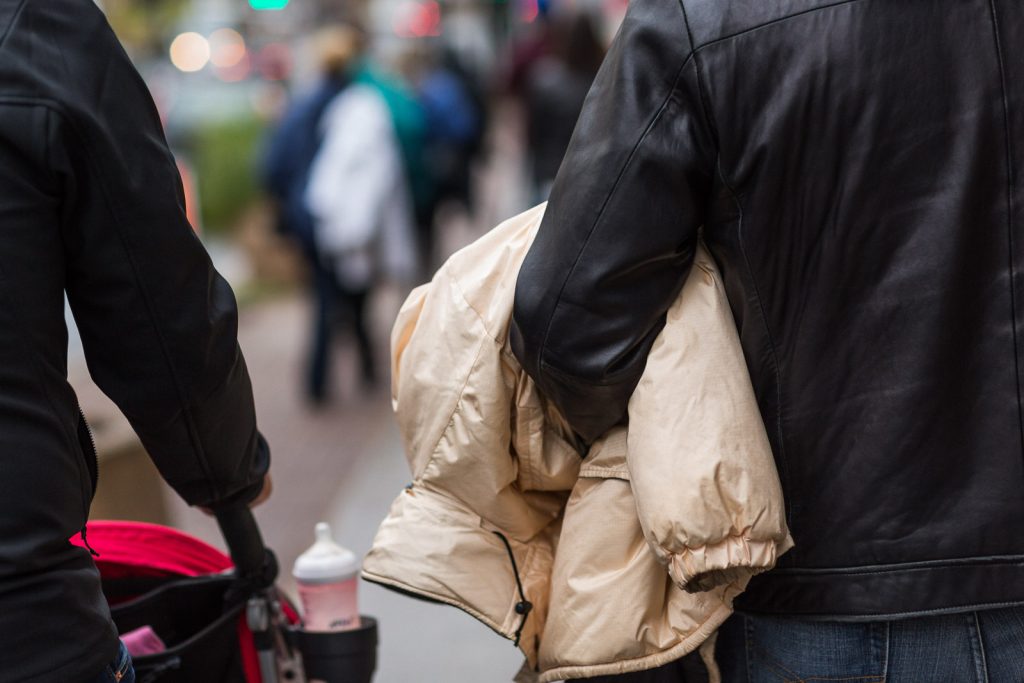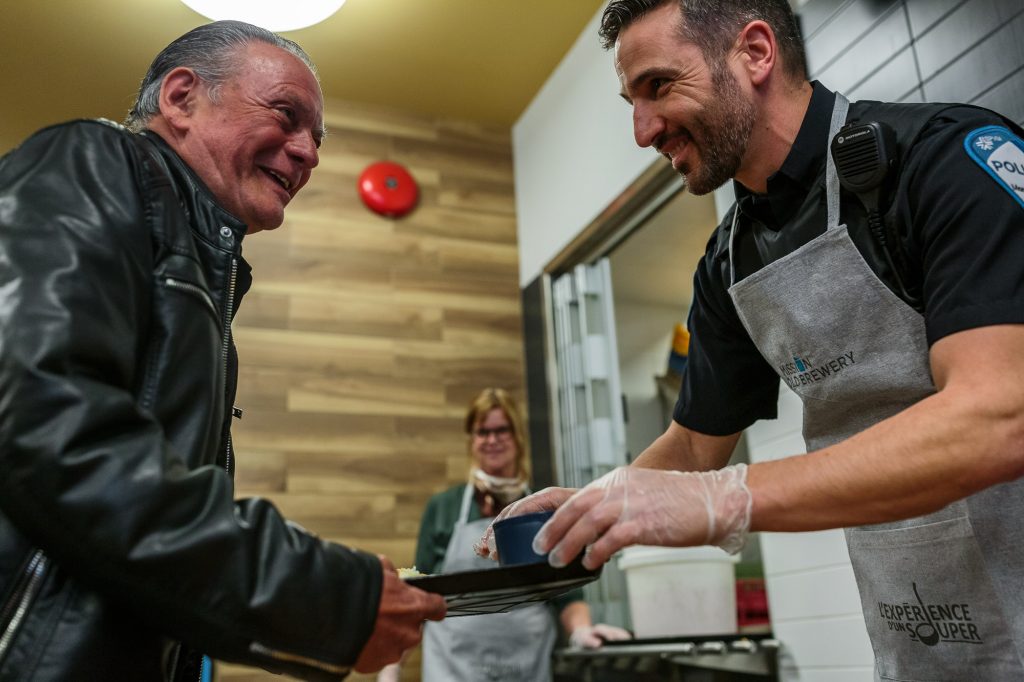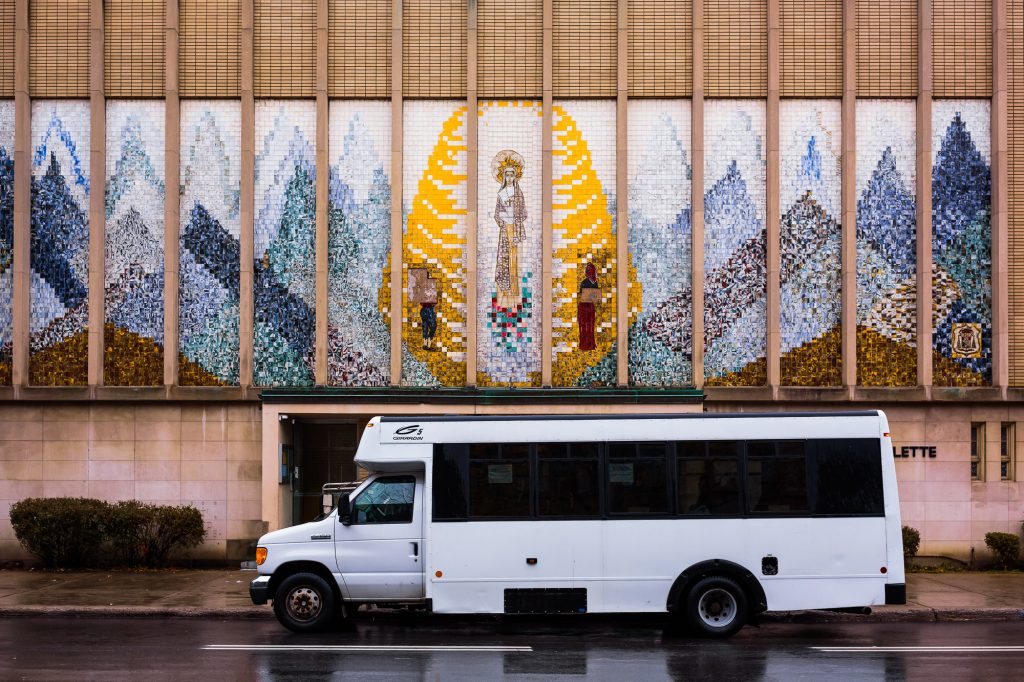
6 Tips on What To Do When You Encounter a Homeless Person

Many people feel uncomfortable when they pass a homeless man or woman on the street. What should they say? What should they do? Here are some tips and sound advice from our staff who work directly with people experiencing homelessness.
1. Say hi.
A nod or a “hello” accompanied by a smile makes a difference. “Loneliness can be crushing. People need human warmth,” say Mission workers.
2. To give or not to give?
It’s up to you, but if you do decide to give money or something else, do it without expectation or judgment. The money may not be used exactly as you would have liked.
3. How to interact? If you see a person who seems agitated, what should you do?
If the person seems unfriendly, it’s best not to approach them. If you feel the person may be in distress, it is best to call 911. Police officers have been drawing on the Mission’s expertise on how to interact with homeless individuals in crisis situations. Just last year, 880 police officers took part in special training provided by our counsellors.
4. Know your local organizations.
Find out about the resources available in your neighbourhood (day centres, warming centres, affordable housing) and you will be able to guide the person you come across to the best places to go. While people who have been on the street for a long time usually know about them, this is not always the case with people experiencing homelessness for the first time.
5. Should I give food or a sleeping bag in winter?
We don’t encourage collecting and distributing food or items such as blankets and sleeping bags on your own. It makes it less likely that people will go to resources that are set up to help them. Living and sleeping outside in winter entails very significant health risks and can even be fatal. In Montreal, there are a number of community resources that offer wholesome hot meals and a safe place to sleep.
6. Nobody chooses to live on the street.
And nobody is immune to homelessness. Today, homelessness has many faces. Bear in mind that some people have suffered tragedies in their lives that have left them with no family, no friends, and no support network. A complex mix of factors can lead to homelessness: long-term poverty, lack of permanent, affordable housing, personal trauma, addiction, job loss, and chronic health problems can lead once stable individuals to the street. You can’t tell why someone is homeless by looking at them so avoid jumping to conclusions about their abilities or circumstances. At the Mission, we have a Research Department devoted to understanding why people become homeless, their needs and trajectories, so we can adapt our services and end chronic homelessness.
Dernières nouvelles
-
 James Hughes, President and CEO of the Old Brewery Mission, receives the National Assembly Medal of Honour
James Hughes, President and CEO of the Old Brewery Mission, receives the National Assembly Medal of Honour -
 Meet Mariane Dupuis, psychosocial counsellor for the PRISM program
Meet Mariane Dupuis, psychosocial counsellor for the PRISM program -
 Will a 5.9% rent hike lead to more economic homelessness?
Will a 5.9% rent hike lead to more economic homelessness? -
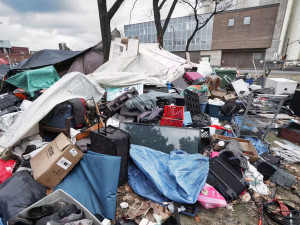 Homelessness in Montreal: Dismantling encampments isn’t the solution
Homelessness in Montreal: Dismantling encampments isn’t the solution -
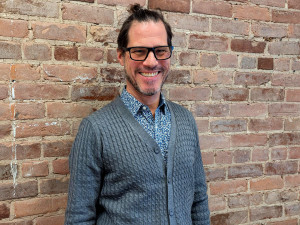 Meet Desmond Olsthoorn, Director of Emergency and Proximity Services
Meet Desmond Olsthoorn, Director of Emergency and Proximity Services - See all news

